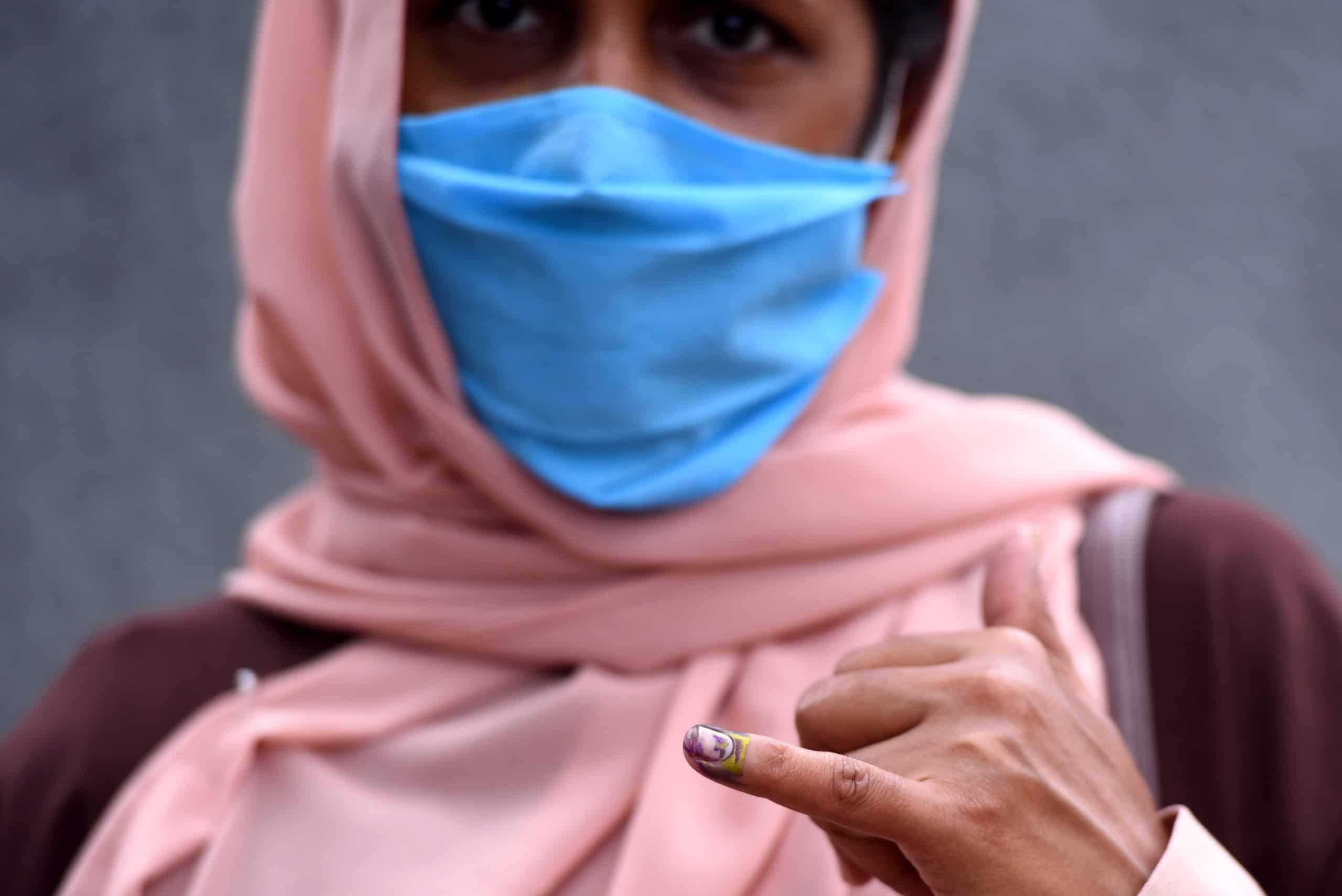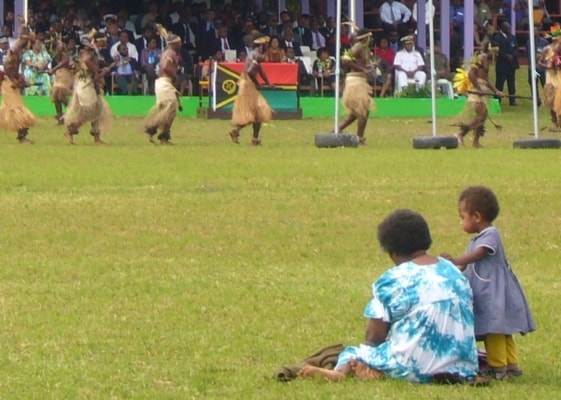Women are active in grassroots political and social activity, yet they remain under-represented in legislatures. Women filling quotas disproportionately come from ‘elite’ backgrounds, leading to a lack of diversity of women’s experiences and interests in decision-making bodies. This DLP project seeks to understand why ‘grassroots’ women do not get elected, drawing comparative insights from Indonesia and Sri Lanka, and its early insights are presented in the following two-part research note.
Research approach:
Existing research on elected female representatives reveals the different pathways of women entering electoral politics and the challenges they face. We take a different approach by also talking with women active at the grassroots to understand why they have not taken a similar path. In-depth interviews with two types of women—those who have and have not entered politics—reveals key factors influencing women’s participation in formal politics.
This short research note outlines the preliminary findings from case-study interviews conducted in Sri Lanka from November 2020 to March 2021. We conducted in-depth interviews with 13 women, comprised of: 7 incumbents or former members of local government, provincial council and national parliament; and 6 leaders and activists within community and grassroots organisations, including religious groups, community/ethnic organisations, and feminist NGOs who have contested and not been successful and others who have chosen not to contest an election. This includes women who participate in organisations that seek to represent a diversity of women, such as advocates for women living with disabilities and for LGBTQI rights.
Sri Lanka is a diverse nation. We have sought respondents who, at least in part, represent the country’s religious and ethnic diversity (Tamil, Up-country Tamil, Sinhala, Burger, Muslim, Hindu and Christian). Sri Lanka is also geographically diverse, with 9 of the 25 districts represented by the informants.
Our early analysis reveals the following key findings:
Violence remains a barrier to women’s political participation. Gender-based violence against women in politics and elections remains an issue in Sri Lanka. This finding is bolstered by existing research which shows that women are exposed to forms of intimidation of a sexual nature more often than men, demonstrating the need for gender-sensitive analysis of election violence. This includes further study of what motivates this violence, the gendered implications and variations in exposure to such violence within different groups of men and women.
Current media practices often undermine women’s entry into politics. The media is seen as an institution that is quick to advertise politicians’ failures but not successes. Prospective female candidates also have a sense that the media favours male candidates. The media presents a biased analysis of male and female candidates, focusing often on the dress of female candidates and their behaviour in public spaces over and above their political agendas or successes. At the same time, the media can be an essential ally but often is not. Several women politicians and candidates expressed disappointment at the lack of visibility their political achievements get from the media.
Being identified as a ‘woman politician’ can be a barrier. At the same time, successful women aspirants are proud that they have overcome the barriers to their participation. Female politicians may be constrained by societal expectations of obedience. This includes facing criticism for speaking too loudly or attending meetings in the evening. At times, women politicians also appear to be constrained to addressing women’s and children’s issues and struggle to be identified as a politician, and not a woman politician.
“You can’t wear a trouser and do a speech on a stage. You have to wear a saree.”
Member of Parliament.
Women candidates also acknowledge the potential for women politicians to be a different kind of politician and the research hints at a thirst for a different kind of politician. For instance, men were seen critically as using many physical resources to campaign, much of which is wasted at the end of the election period, while women were seen as using less resources to have smaller (and arguably more meaningful) dialogues directly with constituents.
Money is needed to win elections, but financial barriers to political entry may be surmountable. Campaigning creates significant monetary demands, furthered by voter expectations that candidates will offer handouts to voters given the long-standing culture where individuals able to influence votes expect handouts from politicians. Yet money too has its limits; when a political party has determined to block a woman’s participation, money would be an insufficient solution. Women also identified ways in which women candidates achieve the same results as men by developing solidarity among constituents and party members, without such expenses (on food and alcohol).
Family support structures can be a determining factor. Many women continue to acknowledge that women have greater success in politics in Sri Lanka where they have familial-political ties. Women also added the benefits enjoyed if the ‘home front’ is an enabling space for women seeking to enter politics. One woman spoke of a husband supporting her throughout her campaign, while others mentioned male and female relatives who accompany them to meetings, help with organising, or in a more general sense support their political activity and also support childcare and housework. While informants spoke of benefiting from the political legacy of a deceased male relative, for other women politicians from conservative communities male household members see politics as an entirely inappropriate place for women.
“[I]f a woman wants to achieve something, she needs either to have a [political family] background or be a public figure in some way. It is very rare for a lone woman to enter politics. This was the situation in the past as well and it hasn’t changed.”
An unsuccessful candidate at the national level and aspirant for the provincial council elections.
While challenging, strategies can be identified to successfully enter politics for women without wealth or familial-political ties. Like many countries in the region, Sri Lanka has a political trend where women who have successfully entered politics have often done so following the death of a politically-active husband or father, referred to by informants as ‘sympathy votes’ or in other parts of the region as dynastic politics. For the women politicians interviewed who fall into this category, their decision to contest or take up a vacant seat is often driven by a desire not to leave the constituency abandoned and to carry on the legacy of a deceased husband or father, motivated either by personal convictions or encouragement by the party. Drawing on the ‘legacy’ of a deceased male relative may mean the woman candidate has to spend less resources in campaigning and may be the main entry point for a woman to be invited by a party to contest. Importantly women candidates with strong political ties do not necessarily succeed, despite the political exposure and despite coming from a known family.
“I see my appointment as an example and encouragement for middle class women that there are opportunities for independent women with personality in national parties beyond wealth or family ties.”
Woman who contested unsuccessfully at local level but received a party appointment to Colombo Municipal Council.
While entering the parliament remains a challenge for women without strong familial ties to politics, entering the local government level, in contrast, may be a natural progression from a period of activism on child rights, or gender issues or through trade union activity.
Interested in the other five key findings and what’s next for the project? Click here to continue reading.
This research note was written by the Sri Lankan research team, please email Ramona Vijeyarasa, Nadine Vanniasinkam or Viyanga Gunasekera for further information.











